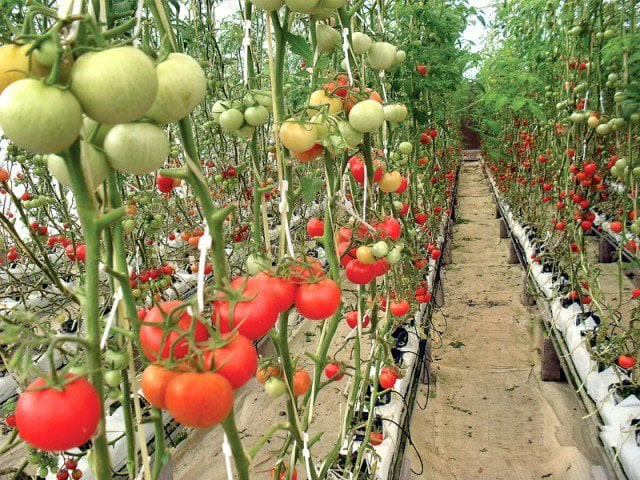‘Food production systems are vulnerable to climate’
MNSUA to host international conference on ‘climate smart agriculture’

PHOTO: FILE
He expressed these views while highlighting the theme of the second international conference on ‘Climate Smart Agriculture’ which would commence from November 26 at MNSUA. The two-day conference would be held in collaboration with Food and Agriculture Organization (FAO). The VC said the international conference would bring together renowned experts on climate change from USA, Italy, Australia, Denmark, Germany, Netherlands and Pakistan.
“World population is expected to reach 9 billion by 2050 and climate change is a reality rather than a myth,” said the vice chancellor.
He further said that food production systems are the most vulnerable to climate change and it is a serious threat to food security, especially in the developing countries.
The vice chancellor observed that Pakistan is steadily among the top ten most prone countries to climate change and is also facing adverse effects due to climate extremity in the recent past.
For the past two decades, the country faced effects of extreme weather such as devastating floods in 2010 and 2014, heat waves and smog.
Moreover, erratic and unpredicted weather patterns, especially changes in rainfall distribution lead to reduction in agricultural productivity and causes disturbance in the existing farming systems. The condition has become worse as the country has already been declared water-scarce, as per Dr Ali. “It has threatened the food security and may devastate the livelihoods of poor farmers,” he said. He added that these situations are damaging for small land holding farming communities.
Also, existing technologies and approaches seem inadequate to minimize the losses due to climate change. “It’s time to explore new technologies and approaches to develop climate resilient farming systems in the country,” he said.
He was of the view that research collaboration, sharing of ideas, knowledge transfer and brain-storming sessions would be beneficial in this regard. UN Environment Emission Gap Report 2018 suggested that agroforestry posed considerable potential for reducing greenhouse gas emission and provide relief regarding core sustainable development goals of the UN.
Published in The Express Tribune, November 25th, 2019.



















COMMENTS
Comments are moderated and generally will be posted if they are on-topic and not abusive.
For more information, please see our Comments FAQ